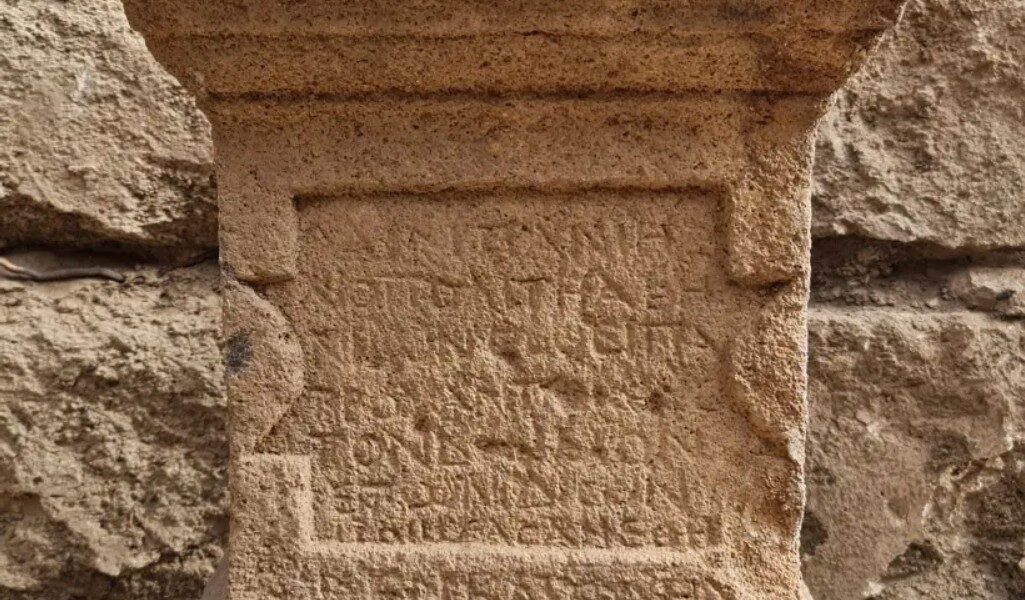Beneath a 400CE Byzantine church built in Banyan in the Golan Heights of occupied Syria, a temple to the Greek god of the wild and music was discovered.
The Jerusalem Post reported that Israeli researchers "made another find that sheds further light on the way that the lives of the later Christians were intertwined with those who worshiped the earlier faiths."
Professor Adi Erlich of the Zinman Institute of Archaeology at the University of Haifa, who is leading the excavation with Professor Ron Lavi, said:
“This site would have had tremendous significance for Christians of the Byzantine era, who believed that this is where Jesus told Peter, ‘I give you the keys to the kingdom of Heaven'."
The Greek inscription, which is estimated to be from 200-300CE during the Roman era, is being examined by Dr. Avner Ecker of Bar-Ilan University.
The inscription reads, “Atheneon son of Sosipatros of Antioch is dedicating the altar to the god Pan Heliopolitanus.
He built the altar using his own personal money in fulfillment of a vow he made."

“It seems that this cult place was visited by pilgrims coming from afar,” said Erlich.
He draws this belief because the donator came from Antioch, 400 km to the north.
"The Banyas excavation is in a unique location that features a cave, cliff and springs, alongside a terrace formed from the partial collapse of the cliff," the Jerusalem Post wrote. "The temple was built not long before the beginning of the Christian era."
The site has always been associated with Pan since the city was founded sometime after Alexander the Great absorbed the area into his empire.
The ancient name was Panion, with Roman philosopher Pliny the Elderly calling the city Paneas, both deriving from Pan.

The Golan Heights is internationally recognized as a part of Syria, with the only exception being the United States as Donald Trump recognized Israeli sovereignty over the territory on March 25, 2019.
Hours after a UN ceasefire to end the Six Day War in 1967, Israeli forces stormed Banyas.
Syrian villagers fled and Israeli bulldozers razed their homes to the ground a few months later, bringing an end to over 2,000 years of life in Banyas that began with the ancient Greeks.

